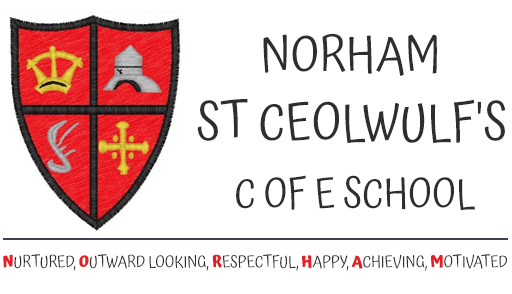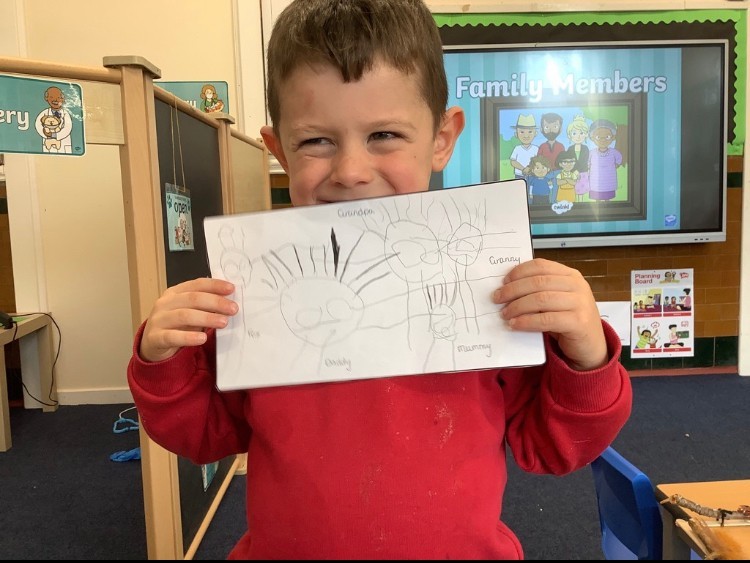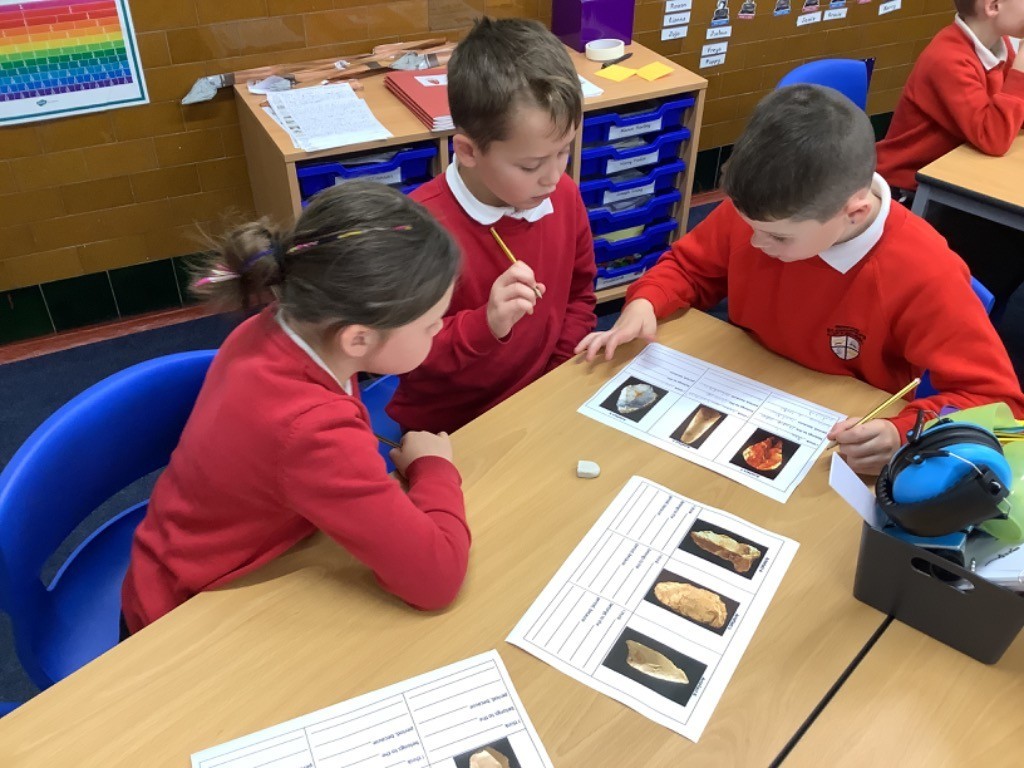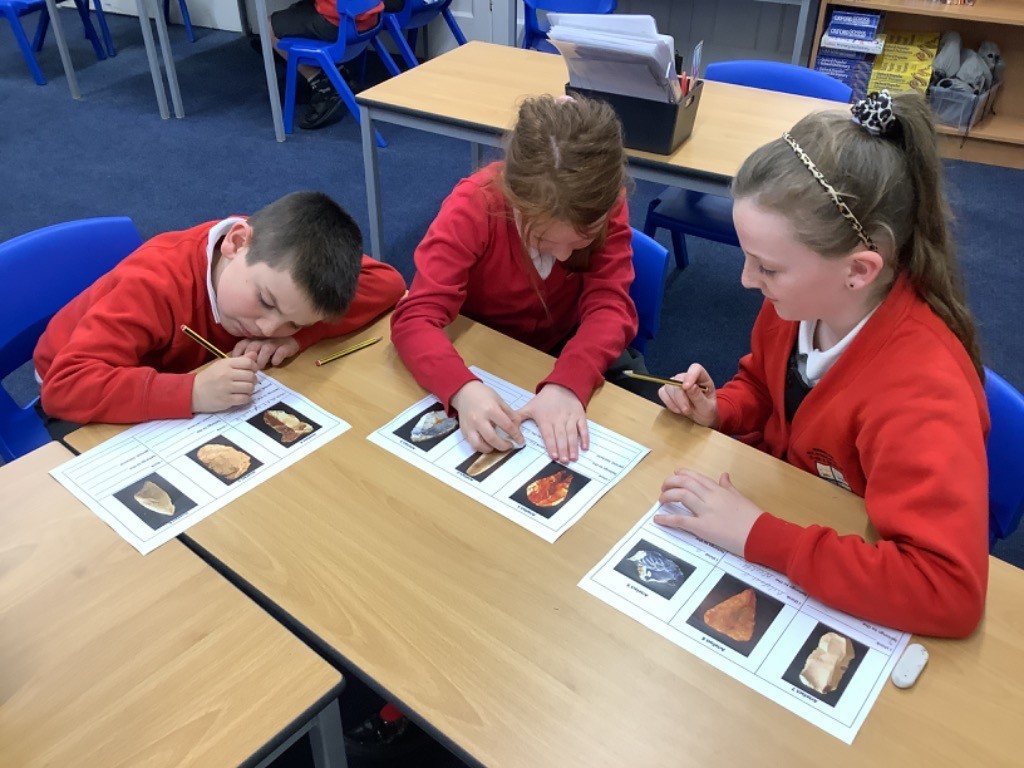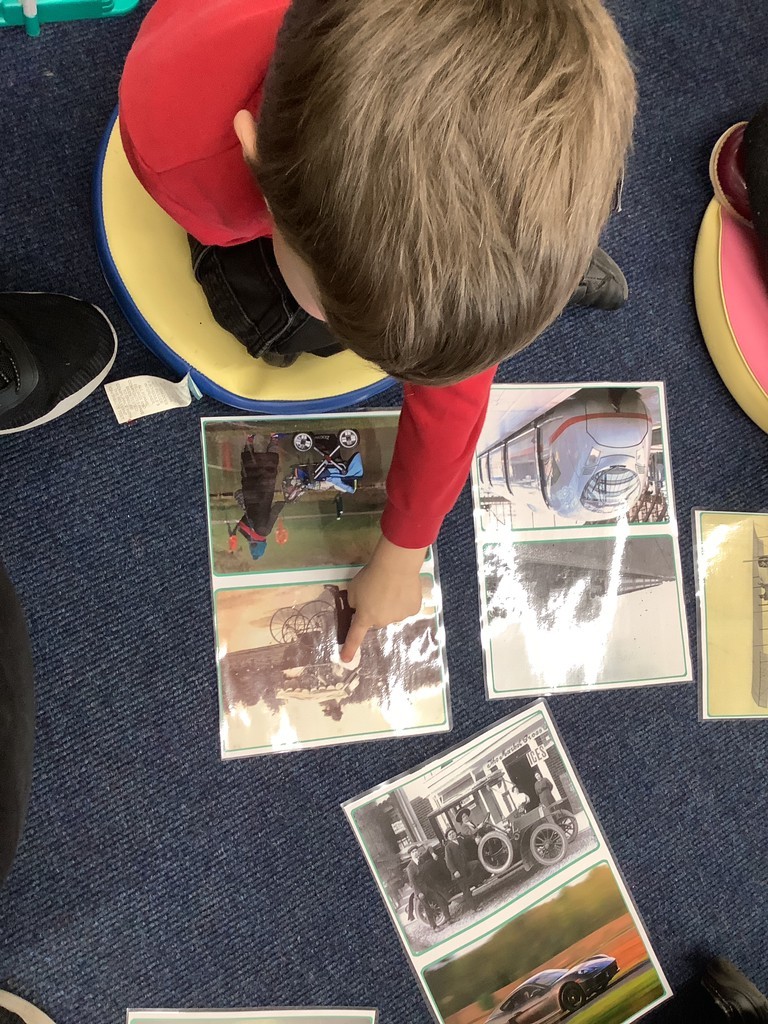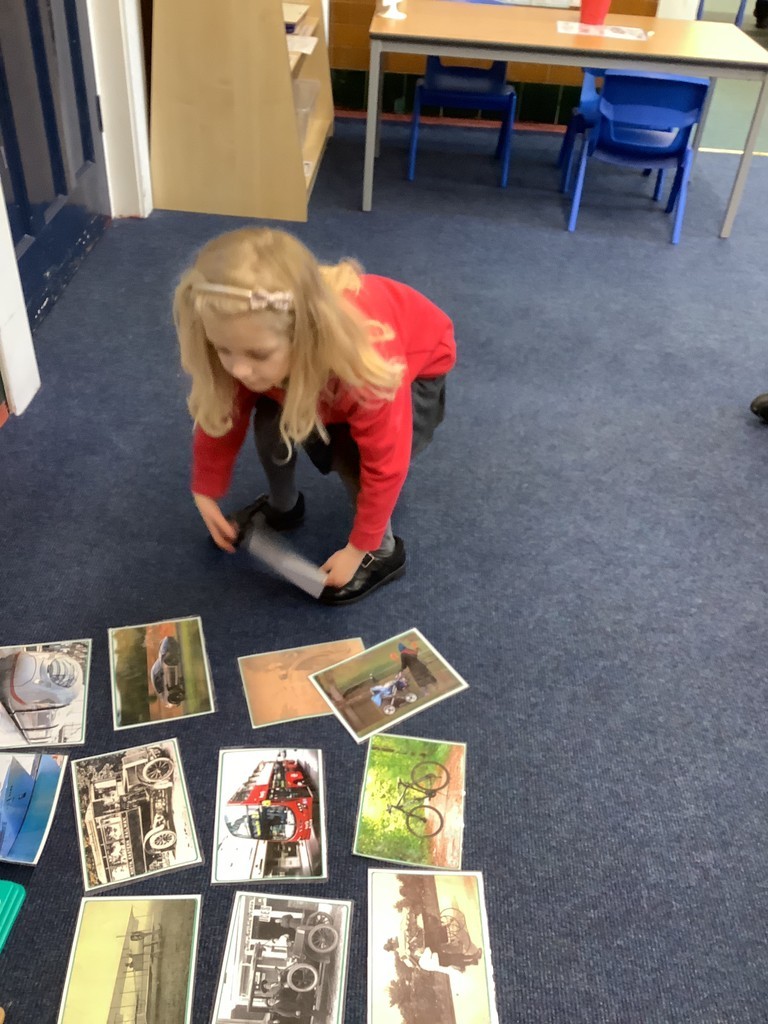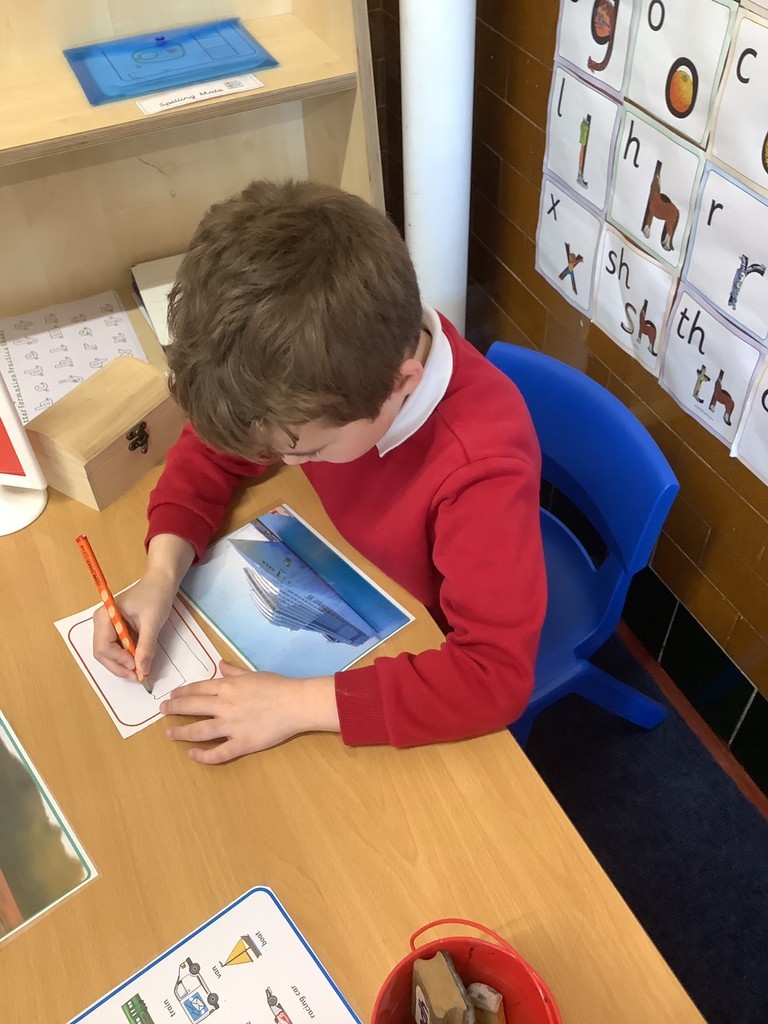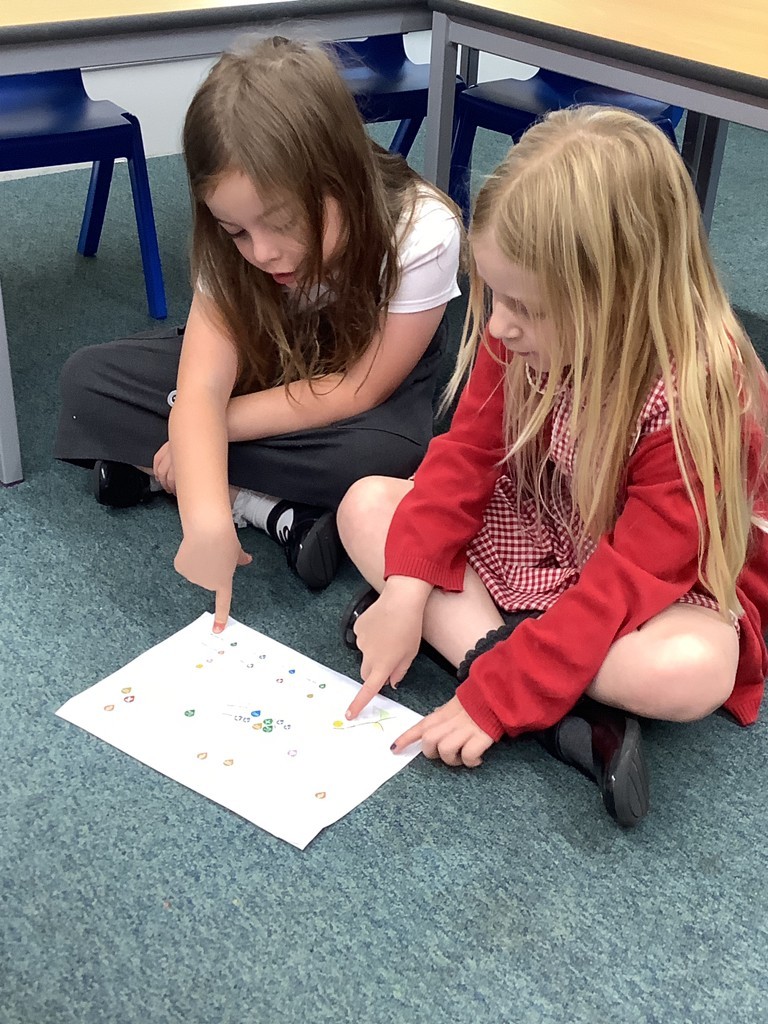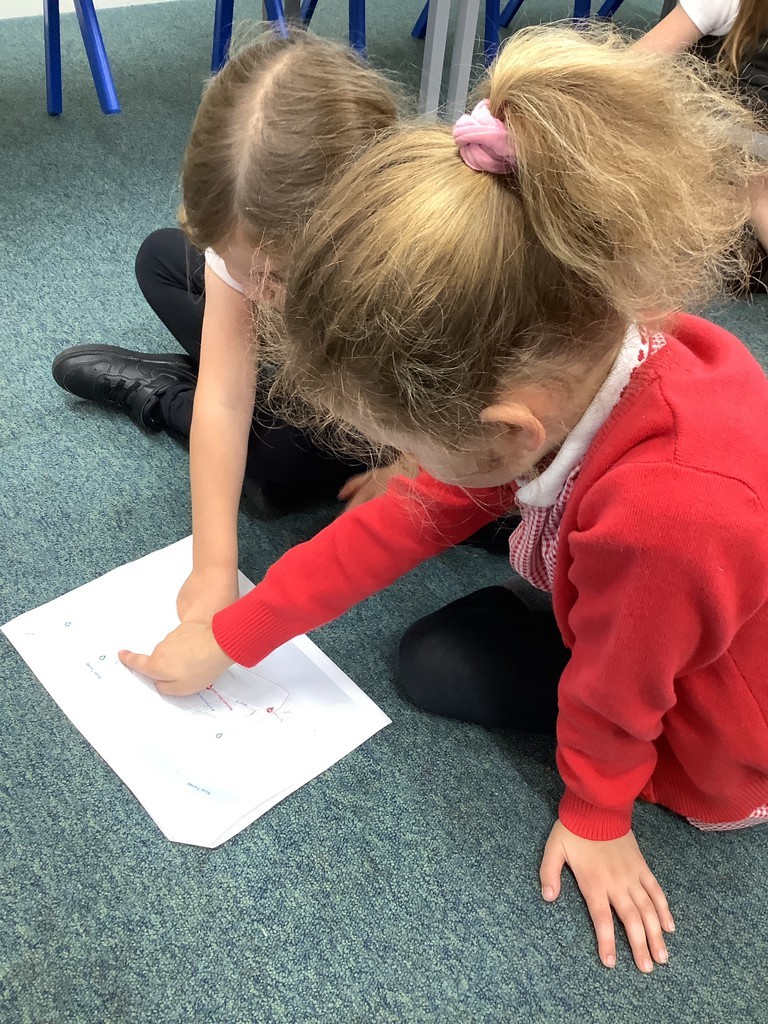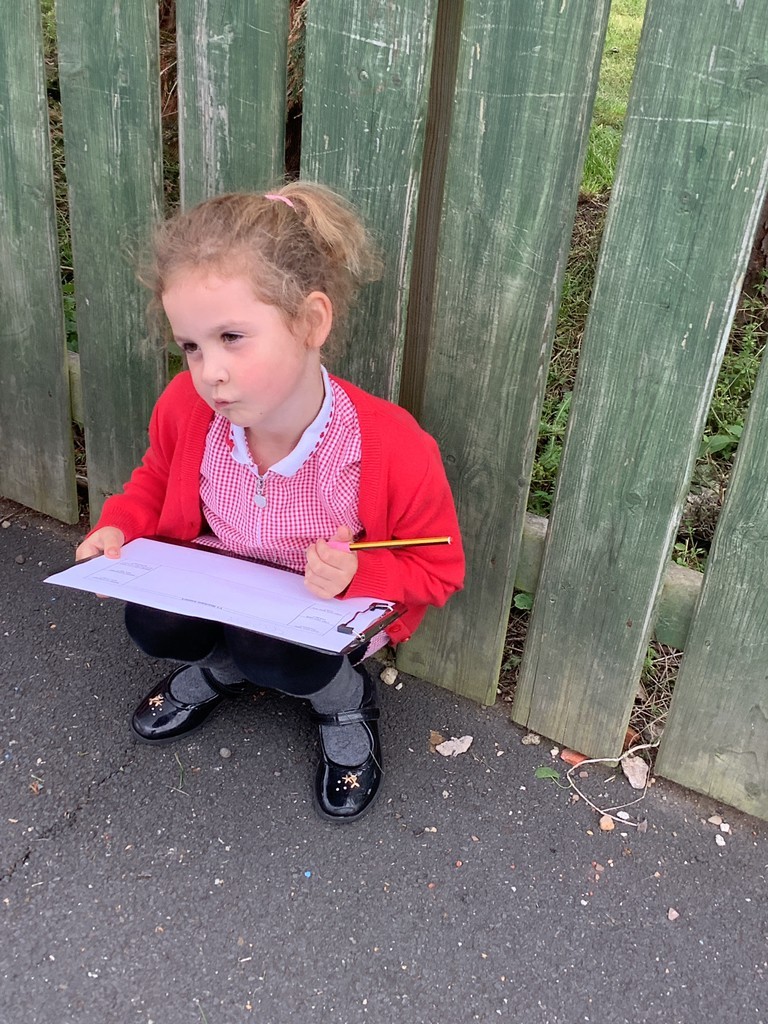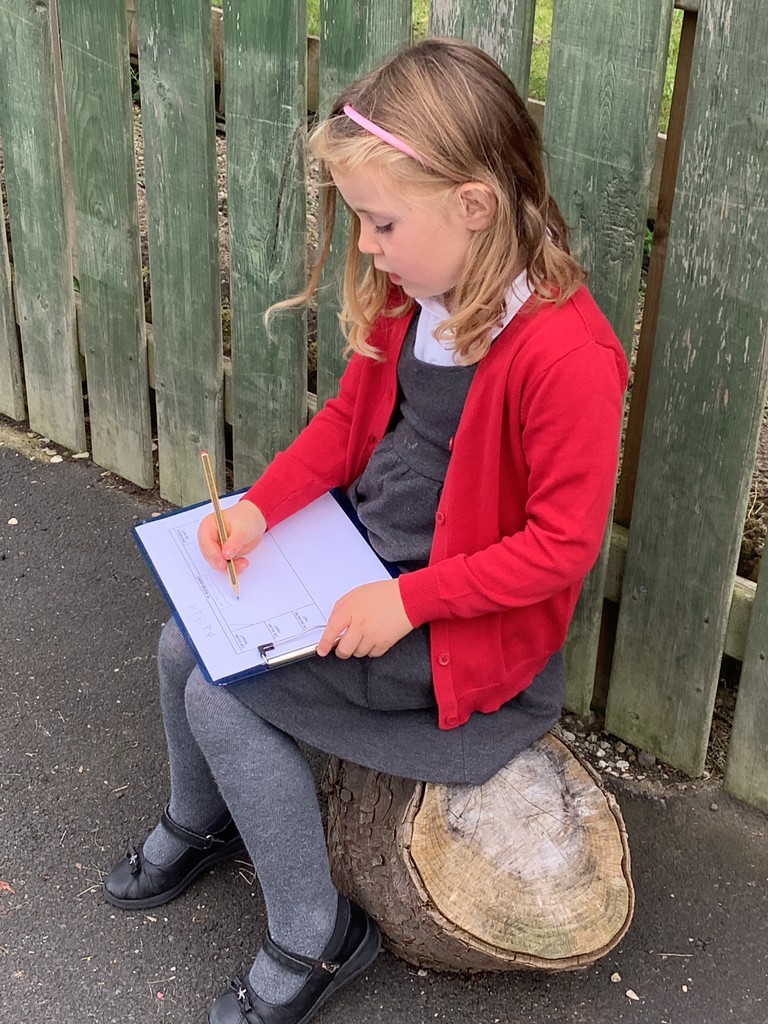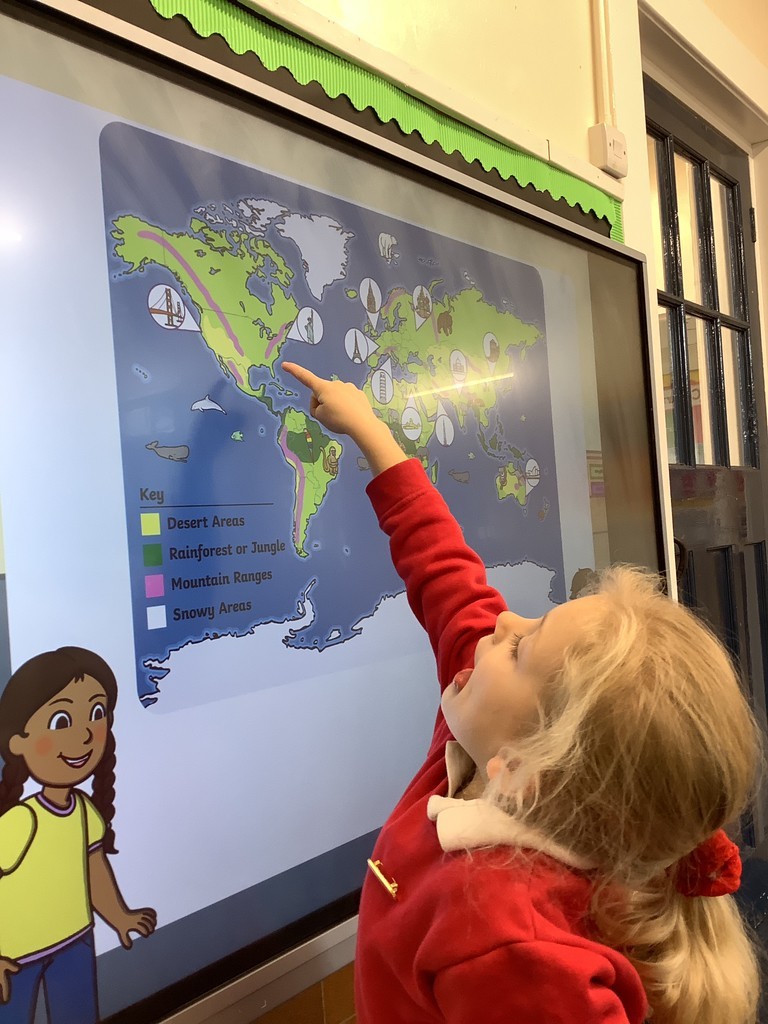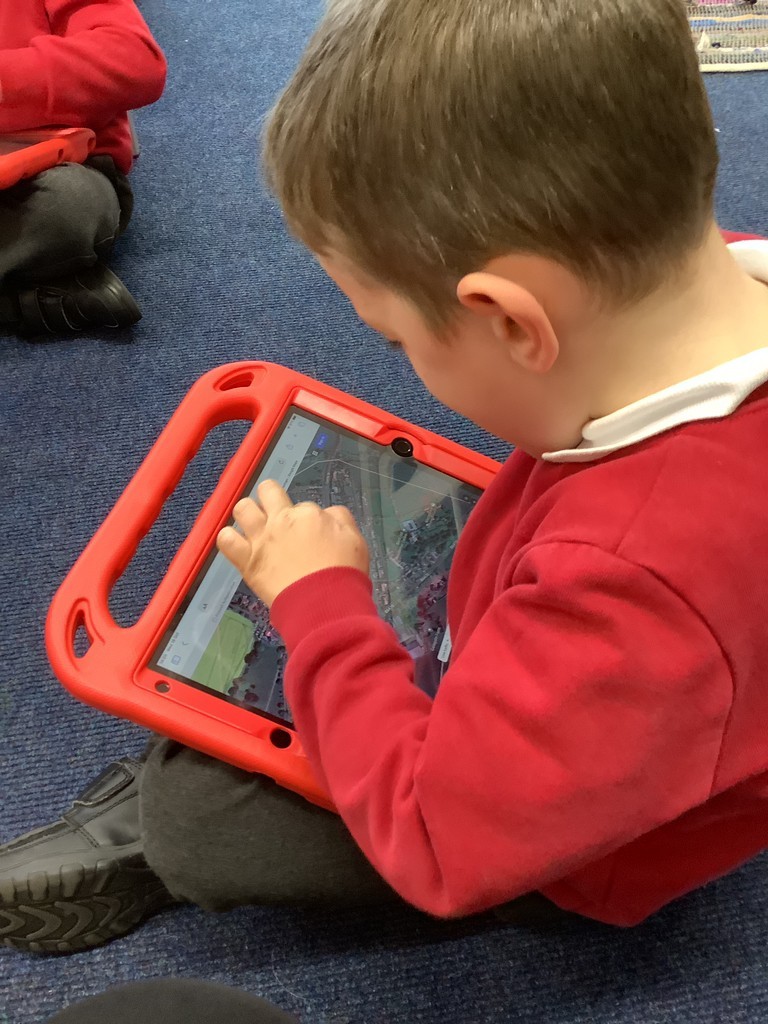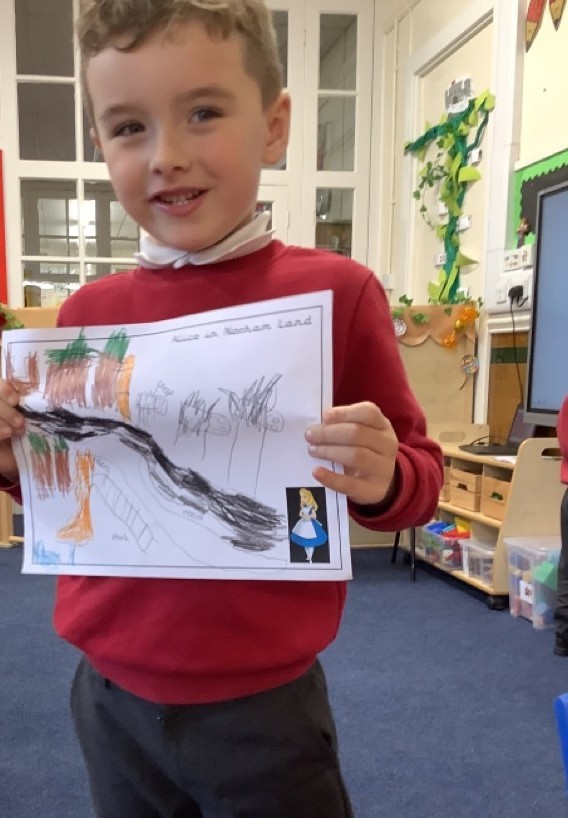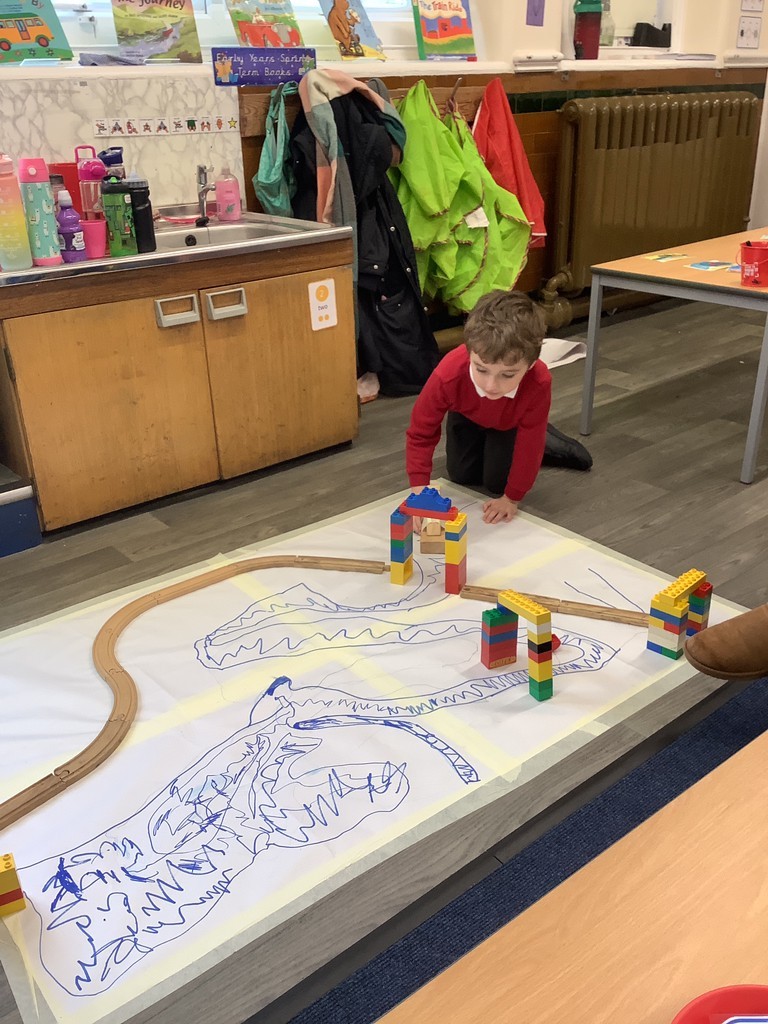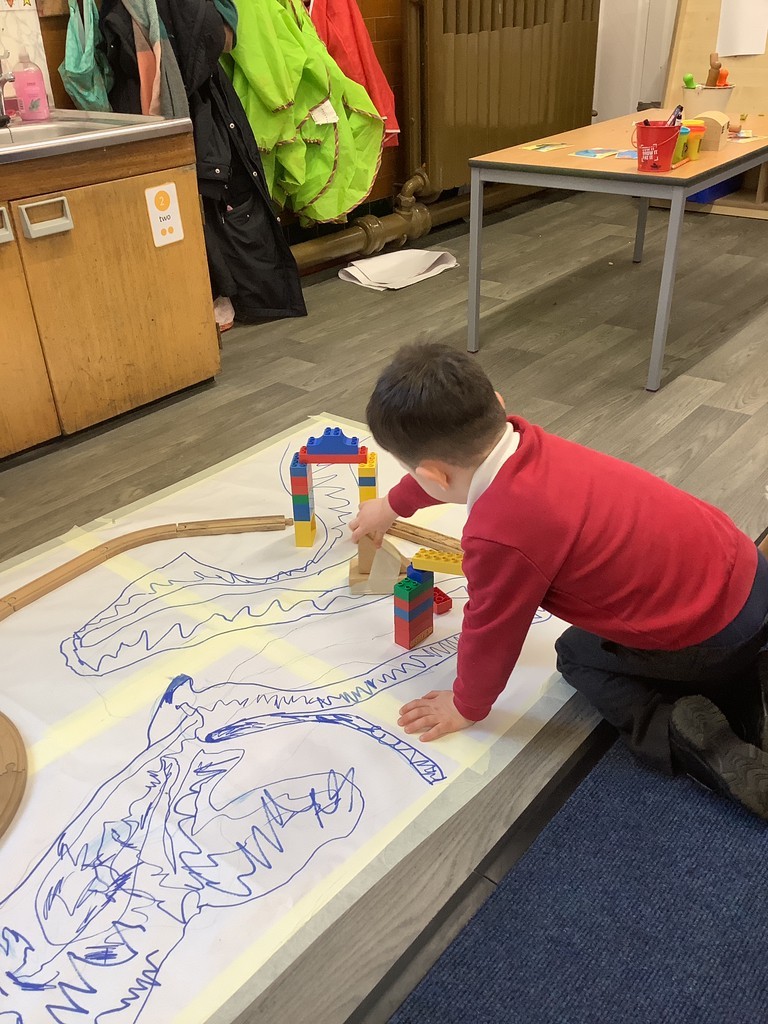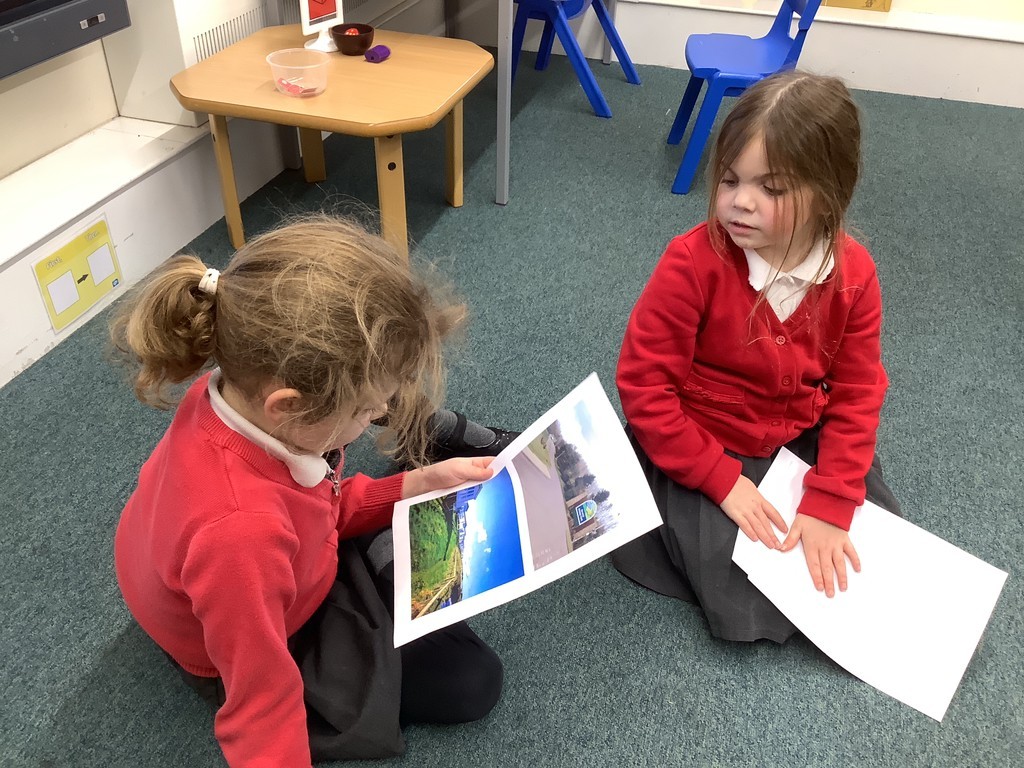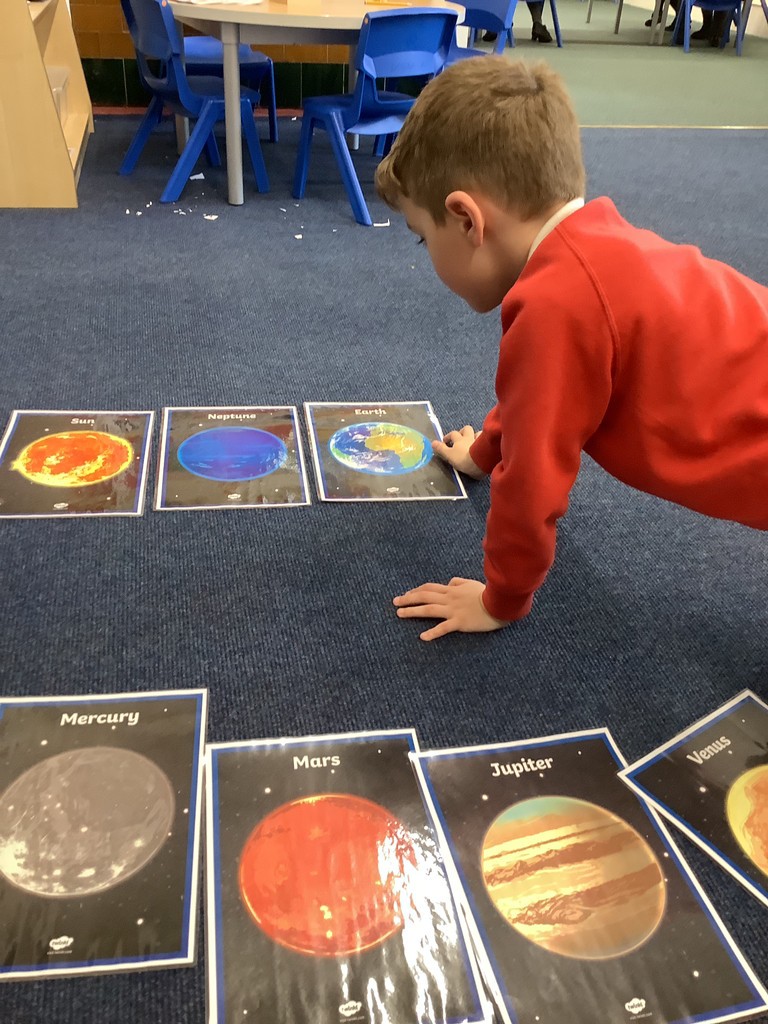At Norham we aim to deliver History and Geography topics which enables them to become confident, creative and independent learners who learn about their local and wider world surroundings. We seek to broaden children’s real-life experiences both inside and outside of school through educational visits, visitors, experimentation, exploration and discovery. Within our carefully selected History and Geography topics, our children acquire a range of knowledge and skills in which they can then apply to other subjects and in a variety of situations. Furthermore, it is our aim that through historical and geographical learning, children will become global citizens, understanding their role in protecting our world and environment and knowing how they can cause positive change and development as they grow.
Each topic has an over-arching question and each lesson has a subsidiary question which leads to an enquiry of learning. Within each topic, lessons follow carefully planned sequences which support children to build on their previous knowledge and skills whilst learning new content. Both history and geography lessons take various forms. Throughout each topic there is a balance of practical, hands-on learning, using the outdoors, research gathering and written recording of knowledge.
History
‘A thousand years in your sight are like a day that has just gone by.’
Psalm 90:4
Our History lead is Miss Simpson.
The purpose of History in the national Curriculum is to help pupils gain knowledge and understanding of Britain’s past and that of the wider world. The curriculum aims to ensure that pupils know and understand the history of the British Isles from the earliest times to the present day and how peoples’ lives have shaped the nation. Other aims include the pupils being able to understand significant aspects of history of the wider world and to understand historical concepts such as continuity and change, cause and consequence, similarities, differences, connections and contrasts.
At Norham First School History is an integral part of our topic-based approach to delivering the curriculum and will be taught at appropriate points of the year with strong links to other subjects. Some topics we teach such as ‘Ancient Egypt’ in KS2 and ‘Knights and Castles’ in Early Years are History focused topics although many aspects of history will also be taught through other topics such as the KS1 ‘Our Local Area’ topic which looks at many aspects of the local area including historical aspects such as how Berwick has changed over time.
History teaching is detailed in our half termly curriculum maps.
Click here to view the full National Curriculum Programme of Study that we follow for History.
In History the children will begin to learn and apply the skills and processes needed for History by asking and answering questions. They will focus on changes to their local environment, family life and famous people and events from a long time ago. They will then build on this to look at worldwide changes over time, by looking at civilisations and empires and how they shaped the world today. Each History topic in Key Stage 2 is planned and delivered in chronological order.
Early Years-Understanding the World
As Historians, in Early Years we explore topics including ‘My Family’, ‘Old and New’, ‘Meaning of Rhymes’, ‘Our local castle – history in the past’. We look at our family trees throughout Autumn term, looking at photographs and exploring changes from us as babies to present. We begin to explore chronology, using ‘then’ and ‘now’ to sequence time. In Spring, we explore the local Berwick lighthouse, using photographs and maps to recognise changes. We also identify the meaning of ‘old’ and ‘new’ nursery rhymes, discussing images and artefacts. In Summer term, we begin to learn about our local history, visiting Alnwick Castle and observing changes while comparing ‘old’ and ‘new’ photographs.
Key Stage 1
As Historians, during cycle 1 in KS1 we explore topics including ‘Bonfire Night & The Great Fire of London, ‘Holidays’, ‘Inventions – First Flight’. The children start in Autumn term by overserving how Bonfire Night has been celebrated in the past compared to modern day celebrations. We explore key artefacts such as Samuel Pepys diary, to help reconstruct the past. In Spring, KS1 explore ‘Holidays’. We observe the popularity of seaside holidays in the past and their key features, we use map work to locate possible holiday locations and conduct research as historians to collect evidence of ‘past’ and ‘present’ holidays. In the Summer term, KS1 explored inventions we learn about the Write brothers and their contribution to travel, using sources to construct the story of the first flight.
As Historians, during Cycle 2 in KS1, we explore topics including ‘My Family’, ‘The Greatest Explorers’ and ‘Our Local Heroes’. Throughout the Autumn term, we explore our own family history through chronological sequencing and comparing our lives to our grandparents! We use different sources of evidence to note changes in our town and important people who lead our country in the past! In Spring, we learn about explorers from around the world, we use chronology to sequence our explorers and the work to categories similarities and differences between them throughout time relating to race, gender and origin. In Summer, we focus on our locality, observing what makes someone a hero. We explore key figures like LS Lowry, Aurther Roberts, and Peter Ramage and their impact on the world today.
Key Stage 2
As Historians, during Cycle 1 in KS2, we explore the topics including ‘Ancient Egyptians’, ‘Anglo-Saxons’ and ‘Local History’. During Autumn Term, we learn about Ancient Egyptians, we use a timeline to help support our chronological understanding of when this period happened, we then synthesise societal roles, achievements, and evidence from important sources such as Howard Carters Diary. In Spring, we explore Anglo-Saxons, with a specific focus on a local case study at Bamburgh Castle. We explain the importance of the Bowl Hole, and how archeologists have helped us to reconstruct the past from the evidence found here. In Summer, we look at the town of Berwick-upon-Tweed as a local case study relating to preservation. We reach informed conclusions of the importance of the key historical landmarks of the town such as the town hall, and the three bridges discussing their importance to us. We compare Berwick-upon-Tweed to other areas close by such as Bamburgh and Alnwick.
As Historians, during Cycle 2 in KS2, we explore topics including ‘The Stone Age’, ‘The Bronze and Iron Age’ and ‘Crime and Punishment’. Throughout Autumn, we venture back to the Stone Age, speculating changes through the period relating to housing, social structures, and religion. We explain how the Stone Age changed when reaching the Neolithic Revolution, and how Skara Brase can teach us so much about the past! In Spring we learn about the Bronze and Iron Age, we summarise how archeology is important when reconstructing the past and reach informed conclusions about accomplishments and advancements of the time. In the Summer term, we explore crime and punishment, we demonstrate an understanding of how punishment has changed from Dick Turpin to Sir Robert Peel and the first police force. We look at modern punishment and the controversial nature of punishment today.
Geography
‘The mountains rose, the valleys sank down to the place that you appointed for them.’
Psalm 104:8
Our Geography lead is Miss Simpson.
The purpose of Geography in the National Curriculum is to inspire curiosity and fascination about the world and its people. The curriculum aims to ensure that pupils develop knowledge of location of globally significant places and understand the processes that give rise to physical and human geographical features. We link our curriculum as much as possibly to our locality, exploring the local coastline in both KS1 in ‘Our Local Area’ and KS2 in ‘Coasts’. The curriculum aims for pupils to become competent at collecting, analysing and communicating data, interpret a range of sources of information including through the use of maps.
At Norham Geography is an integral part of our topic based approach to delivering the curriculum and will be taught at appropriate points of the year with strong links to other subjects. Our KS2 topic on Coasts links well to our seaside collage unit of work in Art and Design, incorporating work by Andy Goldsworthy. In KS1 the costal topic involved in ‘Our Local Area’ links to the Design & Technology unit of work around boat building and their mechanisms.
Geography teaching is detailed in our half termly curriculum maps.
Click here to view the full National Curriculum Programme of Study that we follow for Geography.
In Geography the children begin by studying their local environment before broadening their outlook to the wider world. Each topic is planned in sequence across Key Stage 1 and 2 to explore local geography, a comparison to the UK and then a world topic. A variety of skills will be encouraged through research, studying maps and atlases and practical field work activities to develop knowledge about significant places in the world, understanding their physical and human features. Also how physical and human features relate to each other and change over time.
Early Years-Understanding the World
As Geographers, in Early Years we explore topics including ‘Where we live’, ‘Woodland’, ‘The Beach’, ‘Nursery Rhyme Settings’, ‘Castles’, and ‘Habitats and Environments’. In Autumn, we explore where we live learning about local landmarks and important environments within our school such as the woodland walk. In Spring, we learn about beaches, exploring the features of a beach environment, we learn about nursery rhymes and the different setting that are described within them. In summer, we explore local castles, such as Berwick Castle and Norham Castle, we identify features of castles and compare them. We then learn about habitats within our school environment, exploring the fields, pond and yards to see what habitats are surrounding us!
Key Stage 1
As Geographers, during Cycle 1 in KS1, we explore topics including ‘Our Local Are’, ‘Journeys – Food’ and ‘Wonders of the World’. We start in Autumn, by observing and exploring our local area, discussing key features of our local environment such as the River Tweed and the North Sea. We use our map skills to navigate our local area, using the 4 points of a compass to describe direction. In Spring, we explore where our food has come from. We explore where products such as crops and milk come from, learning about both local and European sources. In Summer, we learn all about the wonders of the world, we identify and name important continents, and locate key landmarks including the Great Wall of China and the River Nile. We then focus on local landmarks such as St Cuthbert’s Cave and Lindisfarne, discussing their significance.
As Geographers, during Cycle 2, we explore topics including ‘Rivers’, ‘People and Communities’ and ‘Animals and Habitats’. We start in Autumn, using the River Tweed as a case study to explore key river habitats and uses of both the past and now. We explore how this river has a significance in our community and changes in physical morphology have resulted in changes in settlement too! In Spring, we explore the 7 continents of the world, we compare different environments through images using key words such as cold/hot and dry/wet to highlight similarities and differences. We observe our locality of Berwick-upon-Tweed and compare this to non-European countries further afield such as Brazil in South America and Niger in Africa.
Key Stage 2
As Geographers, during Cycle 1 in KS2, We explore topics including ‘The Coast’, ‘Our World’ and ‘Climate ad Weather’. Throughout Autumn term, we explore the Coast, summarizing information about coastal environments in the UK with a specific focus on Berwick-upon-Tweed. We explain important coastal features and why we as humans enjoy visiting the coast! In Spring, we expand our focus to the world, we explore the sections of the world, marking key longitudinal and latitudinal lines. We explore time zones and how these link to the International Date Line. In Summer, we explore key clime zones and biomes, demonstrating an understanding of the characteristics of each zone, including polar and tropical zones and locating them. We explain the relationship between climate and biomes and how changing climates could mean changing biomes!
As Geographers, during Cycle 2 in KS2, we explore topics including ‘Rivers and the Water Cycle’, ‘The Americas’ and ‘Earthquakes and Volcanoes’. In Autumn we locate important rivers and mountains around the world using map and orienteering skills. We look at some local formations including Mount Cheviot and the River Tweed and some further away ach as the Amazon River and Mont Blank. We explain how human involvement has impacted upon these environments and what we can do to look after them. In Spring, we explore both North and South America, navigate around major environmental regions including the Great Planes and the Amazon Rainforest. We also look at how coastal areas have been impacted by climate change and sea level rise. In Summer, we summarise key aspect of earthquakes and volcanoes, learning about plate tectonic theory and empathise with areas impacted by the effects of earthquakes and volcanoes.
